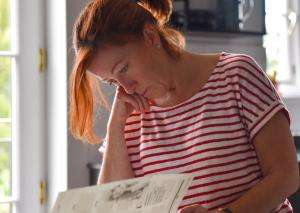Concern over anonymity as doors to family courts open to press

Published by Professional Social Work magazine, 7 December, 2022
A pilot allowing journalists to report what happens in family courts will operate in Leeds, Cardiff and Carlisle from the end of January.
The move means reporters will not only be able to observe hearings but will be allowed to report what happens in court and interview families about their cases.
Families will remain anonymous, but journalists will be able to name local authorities in care proceedings, as well as directors of children’s services, lawyers, and court-appointed experts.
But individual social workers and individual medical professionals treating a child or family member won’t be allowed to be named, unless ordered by the court, which also has the right to refuse to allow journalists access to proceedings under ‘transparency orders’.
Journalists will have access to legal documents, but not expert or medical reports without permission.
The pilot addresses the fact that family court proceedings have often been seen as “secretive” hearings.
Until now, reporters have only been able to observe and report the decision of a judge, unless matters progress to the Court of Appeal.
Sir Andrew MacFarlane, president of the family courts, has said he believes “there is a need for greater openness to build public confidence”.
But Ray Jones, emeritus professor of social work at Kingston University and St George’s, University of London, believes caution is needed, particularly around children and young people giving evidence.
Writing in PSW magazine earlier this year, he said: “While sitting in court having to recount the very personal horrors they have experienced, there will be journalists taking their shorthand notes, raising the fear that this may now all be made known to their friends and community.”
Prof Jones believes the need to boost public confidence should be balanced with “a need to guarantee children and families will not be identified and further hurt and traumatised by the reporting”.
There is also a danger of ‘jigsaw identification’, where public information is pieced together, said Prof Jones.
Such concerns were shared by Samantha Jago, a specialist in family law with law firm DMH Stallard. She said there was a risk of journalists reporting on "the more salacious stories, focusing on the gory details of such cases rather than shining a light on the often-inadequate systems that have resulted in the matter escalating to court".
She also highlighted a risk that domestic abusers will "put on a show" in court, feeding off the audience of journalists. She added: "Although the reporting will be anonymous, for people local to the court it is unlikely that true anonymity will be achieved.
"Revealing certain details, even in a concealed manner, will often lead to identification or worse, misidentification. In either scenario a family may be exposed to unwanted gossip or speculation on what is ultimately a private and deeply personal matter. Do we really want to expose already vulnerable children to this extra layer of pressure?
"We have to question exactly what journalists will get from attending."
However, Serge Paul, a retired social worker and consultant, believes there are benefits to be had from family courts being more open.
Also writing in PSW previously, he said: “The needs of our children and young people are paramount, as is the requirement to protect them from harm.
“It is essential that information is disseminated that shows and reassures the public that the process attempts to do this… and to improve learning and practice.
“There are important stories to be told of cases where we succeeded or failed in restoring or helping create a positive platform for children, young people and their families.
“Ultimately no judicial system is sustainable in a democracy when we end up with secret courts. The public, as well as children and young people, must have some understanding of what family courts are about.”
Emphasising the need for social workers’ identities to be protected, to avoid potential victimization, Serge Paul added: “Protecting witnesses and professionals is vital. Any violence or threats that members of our relatively small profession have suffered as a result of family court cases is unacceptable.”
